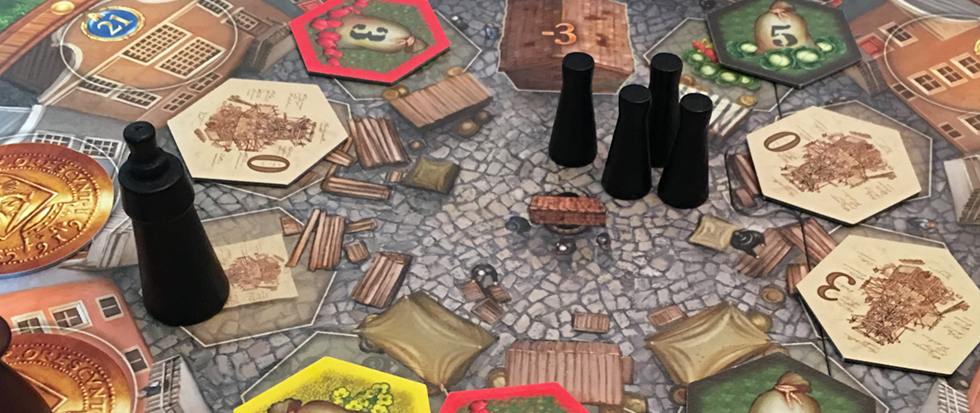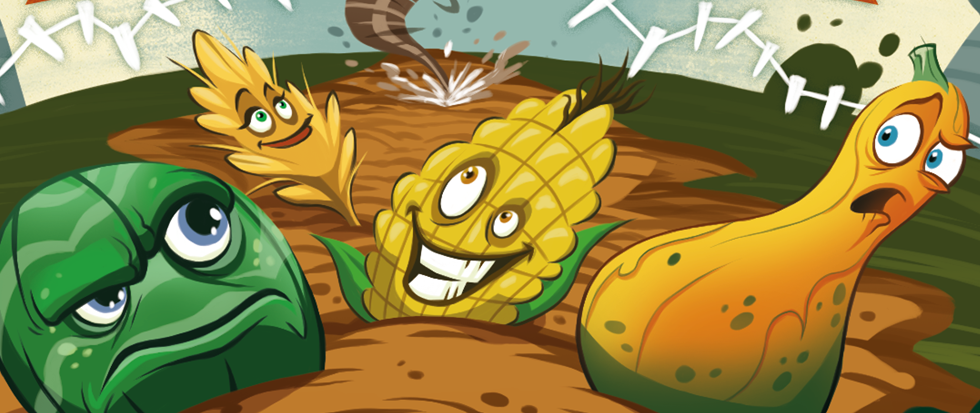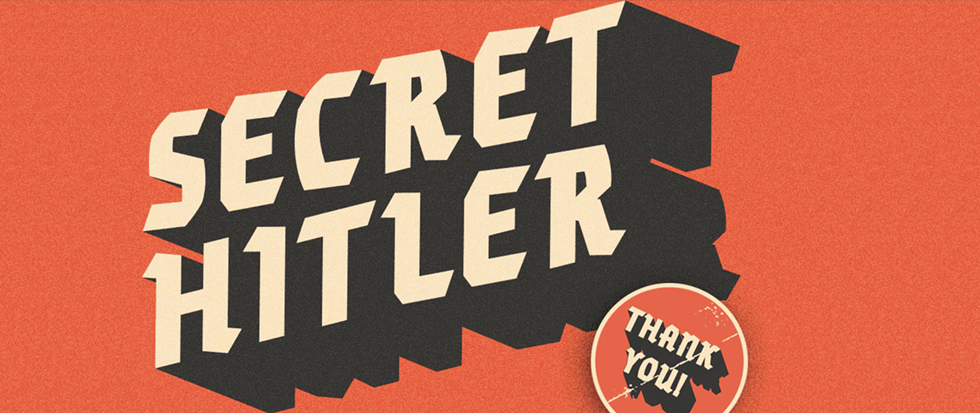
Seeland and the Community of Economy
In board games, there are many ways to handle economy. The most common is that everyone is responsible for their own income: you earn money and spend it on something that will net you precious victory points. Changing economies can affect the way you hoard your cash as well. For example, in San Juan, the value of various goods is determined by the random trading house tiles, so a good’s worth will fluctuate over the course of the game.
Another unique economy comes courtesy of Container, a game of buying and shipping. Here, you set the prices of your goods in an effort to entice other players to buy them. In this way, the game economy is dictated entirely by the players themselves, which certainly adds a layer of complexity but provides more flexibility in how you play.
One of my favorite examples of game economy comes from a rather unassuming title. Seeland is a game about using windmills to reclaim land from the sea. Players can then plant crops in the newly drained lands surrounding their mills. Once a mill is completely surrounded, it scores points based on what’s around it. It’s all fairly basic and abstract, but it’s not the tile laying that makes Seeland worth playing; It’s the economy.
Most of the game’s decision-making takes place on a rondel. Players move clockwise around the rondel and claim tiles to play onto the board. The tiles available for purchase is dictated by the position of the Guild Master; the first space past the Guild Master is free, but every space thereafter costs one more gold.
The big twist is that everyone shares the money available. Via another rondel, players keep track of the money they’ve spent, and cannot spend more than the five they are allocated until everyone else has spent money. In other words, the amount of gold available to all players is dependent on the last player to spend something.
Controlling the economy can be crucial in Seeland. There are times when local governors from the titular town demand a high-scoring windmill. This point threshold is determined by the money rondel, so avoiding spending money can keep that threshold low for your own scoring purposes. Inversely, it can also keep the point goals high for your opponents. And because nobody gets more money until all players have spent some, there is no way to use gameplay to force the economy to change. It’s entirely player-driven.
In a game like San Juan players react to the changing economy in real time. But Seeland offers a large degree of control over the money available to your opponents. This is surprising given how simple the game is to learn and teach. There’s an understated elegance to Seeland that isn’t immediately apparent, but once your group is familiar with the rondel system the smooth-playing nature begins to show itself. It can also be rather cutthroat depending on your group. More importantly, Seeland rewards rewards savvy economic play without requiring a degree.





